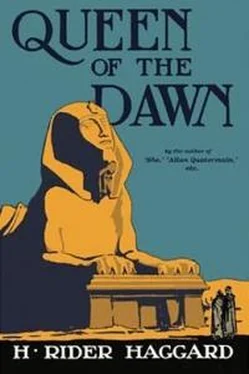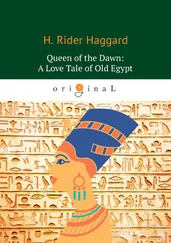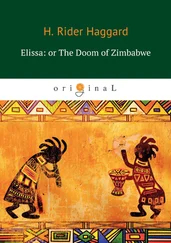Генри Хаггард - Queen of the Dawn
Здесь есть возможность читать онлайн «Генри Хаггард - Queen of the Dawn» — ознакомительный отрывок электронной книги совершенно бесплатно, а после прочтения отрывка купить полную версию. В некоторых случаях можно слушать аудио, скачать через торрент в формате fb2 и присутствует краткое содержание. Год выпуска: 2016, Издательство: epubBooks Classics, Жанр: Исторические приключения, на английском языке. Описание произведения, (предисловие) а так же отзывы посетителей доступны на портале библиотеки ЛибКат.
- Название:Queen of the Dawn
- Автор:
- Издательство:epubBooks Classics
- Жанр:
- Год:2016
- ISBN:нет данных
- Рейтинг книги:4 / 5. Голосов: 1
-
Избранное:Добавить в избранное
- Отзывы:
-
Ваша оценка:
- 80
- 1
- 2
- 3
- 4
- 5
Queen of the Dawn: краткое содержание, описание и аннотация
Предлагаем к чтению аннотацию, описание, краткое содержание или предисловие (зависит от того, что написал сам автор книги «Queen of the Dawn»). Если вы не нашли необходимую информацию о книге — напишите в комментариях, мы постараемся отыскать её.
Queen of the Dawn — читать онлайн ознакомительный отрывок
Ниже представлен текст книги, разбитый по страницам. Система сохранения места последней прочитанной страницы, позволяет с удобством читать онлайн бесплатно книгу «Queen of the Dawn», без необходимости каждый раз заново искать на чём Вы остановились. Поставьте закладку, и сможете в любой момент перейти на страницу, на которой закончили чтение.
Интервал:
Закладка:
Then Temu, knowing the voice, sat up and said:
"O Holy Prophet, as I understand that you are now that Roy is dead, O Father Tau, that is, if a Prophet and Father of the Dawn can be clad in armour which is against all the rules, I am Temu, a priest of your Brotherhood, as you may remember, for it was you who sent me on a certain business to the Court of Apepi, King of the North, since which time I have suffered many things."
"I remember you, Brother," said Tau. "But whence come you in this chariot, and why?"
"I do not know, Prophet. One moment I was talking to him who is called the Scribe Rasa, with whom I have shared many adventures, but who, I think, has another name, and the next my charioteer pitched forward with a missile through his breast, and those mad brutes of horses on which he fell were dragging me away whither I knew not. All I know is that we passed through a host clad in such armour as the Shepherds use, for the moonlight shone upon it and upon Apepi's banners, which I knew well, for I saw enough of them at Tanis. Then the horses, directed of Heaven, came on here. And that is all the story."
"The Scribe Rasa!" exclaimed a woman's voice, that of Nefra who, seeing the fall of the horses, had come from her tent, accompanied by Ru, to learn its cause. "Where did you leave the Scribe Rasa, Priest?"
"Cease from questions, Niece," broke in Tau. "Can you not understand that the force we sent some days ago to rescue a certain garrison has been ambushed and that by some accident this brother has escaped to bring us tidings. Or perchance," he added, as a thought struck him, "Apepi's army has moved from its defences to attack us from the south presently when the sun rises."
Then he gave certain orders. Trumpets blew, captains ran up, men by the thousand, still yawning, took their appointed places; all the awakened camp burst into active martial life.
Meanwhile, not so very far away, a desperate battle raged. The five and twenty thousand of the Shepherds, attackers who thought themselves attacked, hurled themselves upon the five thousand Babylonians who had marched into their midst. The Babylonians, being alert and well officered, strove to cut a path through the Shepherds, aye, and did so, losing many men as they struggled forward. Squadrons rushed on them, dimly seen in the moonlight, and were beaten back. There was charge and counter–charge. Horses screamed, men fell and groaned out their lives.
The moon grew dark, but still the battle went on in the twilight that precedes the dawn, when it was difficult to distinguish friend from foe. The light of day began to gather and by it the captain of the Babylonians saw that he could advance no more. Nor could he fly, for the cloud of Apepi's Horse was all about him. Therefore he made a square of those who remained to him, perhaps two thousand or more sound men and many wounded, and gave orders that none must surrender, since this was a fight to the death for the honour of Babylon.
When Apepi's captains in the gathering light perceived with how small a body they had to do, they were dismayed who thought that all this while they had been attacking the flank of the Babylonian host in the darkness. And now the dawn had come and their opportunity was gone; they had failed in their mission and how could they face Apepi with such a tale? In the fighting they had seized prisoners, some of them wounded. Those men they questioned. Under threat of death by torment, or with beatings, from some of these they drew the truth that this was but a force of Babylonian skirmishers sent to relieve an outpost which they were bringing back with them to the army.
"Who, then, is the man that sits in a chariot among the horsemen?" asked Apepi's captain.
The prisoners answered that they did not know, whereon he ordered them to be flogged a while, and then repeated his question. Thus he learned that this lord in the chariot was none other than Khian the Prince whom he himself had been ordered to capture when he was escaping from Egypt, for though the prisoners gave only the name of Rasa the Scribe, well he knew that Rasa and Khian were the same man.
Then that captain saw light in the midst of a great darkness. He had failed, it was true; he had not fallen upon the flank of the army of Babylon at this hour of dawn, or thrown it into confusion and panic, as he had hoped to do, but instead had become engaged with a petty force of which the destruction would help Apepi not at all. But now he learned that with that force was one whose capture would mean as much, or more, to Apepi as a great slaughter of the Babylonians. Instantly he made up his mind; he would not try to attack the army of the great King; it was too late. No, he would destroy these horsemen and take the Prince Khian, living or dead, as an offering to Apepi, hoping thus to assuage his wrath.
Instantly he gave orders and the attack began. Being mounted, neither side had bows and now javelins were few. Therefore the fray must be fought out with swords. The Babylonians had picketed their horses in the centre of the square or given them to the wounded there to hold, turning themselves into foot–soldiers. Moreover, by command of their general, with hands and stones and cooking vessels they were heaping the desert sands into a bank which, with two thousand men or more labouring at it for their lives, rose as though by magic, for the sand was soft and easy to handle. At this bank the Shepherds charged from every side. But the Babylonian square, set on the crest of a desert sand wave, was small, for its general had drawn up his men three deep, each line standing behind the other. Therefore only a few of the clouds of Apepi's horsemen could come at them at once, and at these the Babylonians stabbed with their swords, or cut at the horse's legs as they scrambled up the sand slopes, laming them, or causing them to scream in agony and rush away.
Soon Apepi's captain saw that victory would be slow, which fitted his plans but ill. Every moment he was in fear lest the outposts of the great army should discover what was passing not so very far away and send out a mighty force to destroy him. He feared also that the wounded man in the chariot whom he guessed to be the Prince Khian might be killed in the fighting, whereas he desired to take him living to Apepi. Lastly he feared that even if he were not attacked, soon he and his horsemen would be cut off from Egypt and driven back into the desert, to perish there of thirst and hunger. Therefore, ceasing from his onslaught, he sent officers under a flag of truce to the Babylonian general, charged to deliver this message:
"Your case is desperate since I outnumber you ten to one. Surrender and in the name of Apepi I promise you your lives. Fight on and I will destroy you all."
The Babylonian heard, but being a crafty man, would give no immediate answer, for he, too, hoped that news of their plight would reach the great army either through messengers whom he had despatched when they were first attacked, or otherwise. Therefore desiring to gain time he replied that he must take counsel with his officers and presently would let their mind be known. He went to the centre of the square and coming to Khian, told him all.
"Now what shall we do?" he asked. "If we continue the fight, we must soon be overwhelmed. Yet surrender we cannot for the honour of Babylon; indeed, first will I fall upon my sword."
"It seems that you have answered your own question, General," replied Khian, smiling. "Yet here is my poor counsel. Offer to give me up, for you know well who I am and it is whom they seek. I think that if you do this, that captain will let the rest of you go free."
Now even in his sore strait that general laughed aloud, saying:
"Have you bethought you, Prince, for since you have declared yourself I call you what you are, how I should be greeted by the Prince Abeshu, also named the Lord Tau, who commands the army of the Great King, and by a certain lady who marches with that army, if I return to tell them such a tale? Rather would I die, Prince, with honour upon the field, than shamed before all the host of Babylon. No, I have another plan. I will parley with these Shepherds as one who bargains, asking for the promise of safety in writing, and while I do so all must creep to their horses, taking the lightly wounded behind them and leaving the rest to fate. Then suddenly we will charge upon the Shepherds and, now that we have light, cut our way through or perish."
Читать дальшеИнтервал:
Закладка:
Похожие книги на «Queen of the Dawn»
Представляем Вашему вниманию похожие книги на «Queen of the Dawn» списком для выбора. Мы отобрали схожую по названию и смыслу литературу в надежде предоставить читателям больше вариантов отыскать новые, интересные, ещё непрочитанные произведения.
Обсуждение, отзывы о книге «Queen of the Dawn» и просто собственные мнения читателей. Оставьте ваши комментарии, напишите, что Вы думаете о произведении, его смысле или главных героях. Укажите что конкретно понравилось, а что нет, и почему Вы так считаете.












